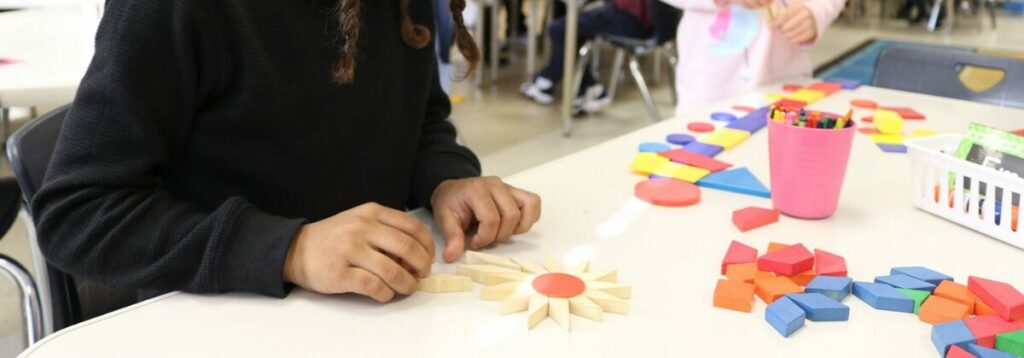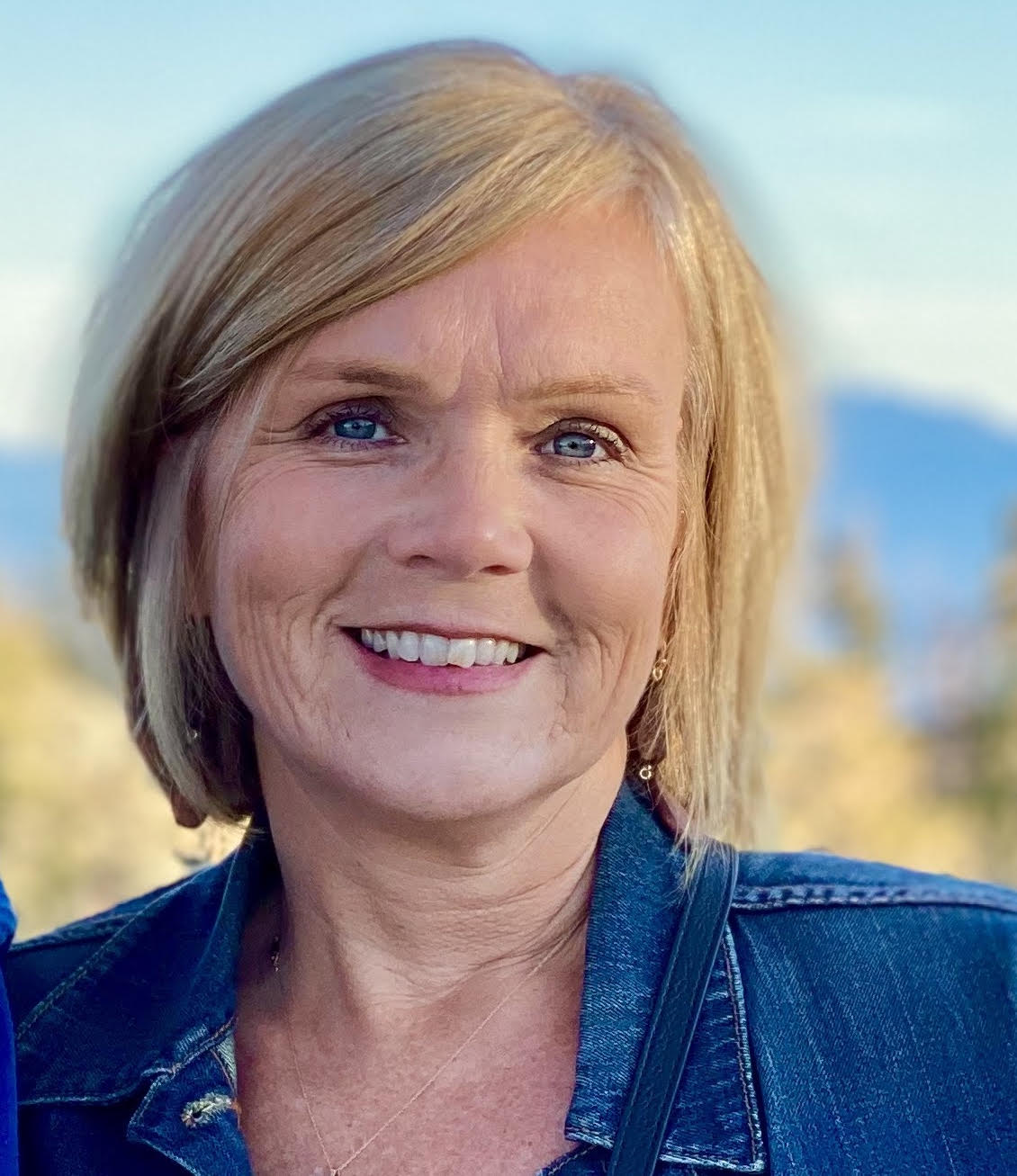We always went back to the question: Are we staying true to the pedagogy that we believe in?
Susan Dugle, Chief Academic Officer, Shelby County Public Schools
Shelby County Public Schools is a rural district in Shelbyville, Kentucky that serves 7,182 learners, ages 5-18. The district has been taking powerful steps toward realizing their learner-centered vision for nearly a decade. We recently had the pleasure of speaking with Susan Dugle, the district’s Chief Academic Officer, who has played a critical role, from its inception, in guiding and evolving this work.
Q. What inspired the launch of Shelby County Public Schools’ learner-centered journey?
Susan: Shelby County Public Schools has always been a really strong district with strong community support. It’s the hub of our small community of 50,000 people.
In the last 10 years, like many districts in the country, we started to focus on closing the achievement gap. For us though, the gaps in our students’ achievement were hidden—meaning our overall test scores were in good standing, but they weren’t telling the full story. Once we dug into our accountability system and looked beyond what the average test scores were telling us, the gaps between specific students and our overall population were exposed.
After we exposed those gaps, we decided that test scores were not as important as our individual students’ needs. We wanted each of our students to have a unique learning journey, gain several essential competencies, and have the freedom to find their own success. This could only happen by reinventing our district’s approach to instruction.
Q: What was one of the first big changes the district made as it moved away from prioritizing test scores?
Susan: As our district made this shift, one of the first things we did was partner with the Public Education & Business Coalition (PEBC)—an organization that “works in Colorado and across the nation to prepare outstanding new teachers, help practicing educators become exceptional, and shape policies that foster vibrant growth and lasting student success.” We enrolled our teachers in PEBC’s Thinking Strategies Institute (hosted in Denver)—a four-day professional development program that includes two full days of professional learning and two days of observation in PEBC’s classrooms.
We began by sending four cohorts of teachers to Denver between 2009 and 2010, and each time teachers returned from the training, we enlisted instructional coaches to guide teachers to continue growing their practice.
Our board of education recognized the value of these trainings and set the expectation that every educator in our district should be grounded in a classroom workshop model that centers metacognition, student discourse, and student ownership. Eventually, our district partnered with PEBC to begin hosting the Thinking Strategies Institute in Shelby County for teachers from across the state.
The first visit for our educators to the Institute was over 10 years ago and now, every incoming teacher in Shelby County is trained in this workshop model.
What I wish I could tell you is that things were smooth sailing from there. But, we still had more lessons to learn before identifying the right path for our district—one that guided us away from compliance and toward more powerful learning for our young people.
Q. How did you evolve your model after putting that foundation in place?
Susan: With this foundation in place for our teachers, along with a four-year strategic plan to integrate more personalization across the district, we began piloting—at almost every school—small personalized learning academies, which we called 3PT (path, place, pace, and time). These four 3PT variables guide the personalized learning design approach we believe best fits what we want to provide our students.
We also introduced standards-based grading during this time—a process we completed and implemented across the entire district in four years. We felt this was critical to giving our students the opportunity to progress through a deepened focus on learning, rather than the completion of assignments or measurement through percentages.
And, we developed “Steps to College Readiness”—benchmarks that determined if a student was on the right trajectory to meet college readiness upon graduation—and brought together educators from every grade to identify indicators at each level. However, we started noticing that this was all still based on standardized test scores, which didn’t align with our more holistic learning and assessment vision.
Q: What did the district try next to better align with that vision?
Susan: Near the end of working through our first four-year plan, we decided to create a Profile of a Graduate that pulled in design-thinking elements from the Stanford d.School. When creating the profile, it was really important for us to start with educators, who spent the most time with young people.
Next, we assembled stakeholders from across the community. We tapped parents, kids, teachers, pastors, industry leaders, and business leaders to provide input and feedback on the creation of competencies that served as a rendering of the ideal “life ready” student.
At the end of that process, we were sure we had created the right blueprint, but then additional input from our community stakeholders pointed to the need to make more adjustments to the profile.
I could ask any teacher in Shelby County to name a student like that, and they would tell their story of another learner who really rose to the occasion and fulfilled their potential because they were empowered to do so.
Susan Dugle, Chief Academic Officer, Shelby County Public Schools
The blueprint was still this narrow path to college readiness, instead of describing a successful student who would be a leader in the community and world, regardless of the path they choose after graduating. We changed our language to describe the competencies and transferable skills that would empower every young person in every area of their lives. We included phrases like critical thinker, responsible collaborator, lifelong learner, effective communicator, global citizen, and inspired innovator.
And, whether it’s through partnerships in our community, internships, or work-based learning, the driving goal is to bring to life a competency-based education system wrapped around enduring, core, transferable skills that apply to novel situations (rather than basing it off content because content changes every day in our world).
Q. You mentioned a broad list of stakeholders you included in the Profile of a Graduate design process. How has including people from outside the district helped the district provide learning opportunities it didn’t have access to before?
Susan: Over 250 local stakeholders helped write our strategic plan, many of whom were from the business community, which established broad ownership. They really feel responsible for these kids.
Since we’re located between Lexington and Louisville, Kentucky, we’re able to attract a lot of businesses and professionals from surrounding counties—there are 70 industries in Shelby County. There are so many rich possibilities for partnership that we have a Workforce Development Coordinator who acts as a liaison between our district, the chamber of commerce, and industry leaders.
Through that relationship, one of the organizations that we’ve enlisted is the Associated Industries. Some of their members serve on our advisory committee, informing and supporting our Career and Technical Education educators. Thanks to their engagement, our internship program has really thrived. When we send them students, they share in and celebrate the success of our students and then tell others about that success, which expands our network.
We’re very intentional about including local businesses in our efforts, and in-turn, they include us in initiatives that go beyond our district. Our strategic plan calls for increasing the number of partnerships in the community, and we’re holding ourselves accountable to that. It also adds so much value to our kids learning, discovery, and growth to have access to so many opportunities.
Q. Speaking of kids, what’s one story about a young person that illuminates why this work is so important?
Susan Dugle: In one of our piloted personalized learning academies, I witnessed a breakthrough with a middle school student who had difficulty communicating with peers and others.
I remember going one night to see this student present their exhibition of learning. I was there to evaluate his performance based on our “effective communicator” competency—taking notes on his eye contact and voice, listening for transitions, and watching for other gestures that could be offered as feedback following his presentation.
It was really rewarding to watch this student—who had struggled to open up—talk with so much confidence about his passion project: taking care of his dog. It was clear that he really enjoyed the journey of becoming an expert on all of the components of dog care. He flourished in that situation, rather than shutting down, because he was given choice, agency, and supportive feedback.
I could ask any teacher in Shelby County to name a student like that, and they would tell their story of another learner who really rose to the occasion and fulfilled their potential because they were empowered to do so. That’s what this work continues to be about, and that’s what it means to our district.
Q. What advice do you have for anyone leading district-level transformation?
Susan: The first piece of advice I would give is to focus on the foundation of your pedagogy before thinking about innovation elsewhere. You can’t have innovation without a foundational structure—there’s nothing to innovate on.
We’ve learned that starting a new path can mean both having to let go of some things but also holding even more closely onto others. For example, letting go of conventional grading practices and maintaining our commitment to using the workshop model. And, along the way, whenever things started to waver, we always went back to the question: Are we staying true to the pedagogy that we believe in?
Teachers have accepted that the workshop model we follow may change a little from classroom to classroom. The mini lesson one educator delivers may look different than someone else’s, but there’s always space to come back together, reflect, and learn from each other.
The second piece of advice is to make sure when you’re the lead learner/visionary, you’re finding balance and being very strategic about how you’re bringing others along. Transformation isn’t something you can mandate.
Q: What helps you keep going even when the work gets challenging?
Susan: Over the past 10 years, I’ve lost count of how many times we’ve had to acknowledge how much easier our lives would be if we took a more conventional approach. For us, every day is a challenge, but it is a wonderful challenge that gives us purpose.
Having a strategic leadership plan that scaffolds each year and holds district leaders, principals, teachers, students, and community members accountable really helps us see progress. For example, within our plan, there’s an entire section dedicated to talent development that maps out the role educators play in leading personalized learning and what they need to know to guide that model of learning.
This work requires educators to be constantly learning. You can’t just do what someone else tells you to do. You have to understand the why—know it and build on it. We have over 500 teachers who understand that this all needs to work for kids. Adults need to understand the deep learning that can happen when you embrace competency-based education, personalization, and student centeredness.
Our educators (and really all of us) have a learner mindset. You need to have that perspective in this work.

